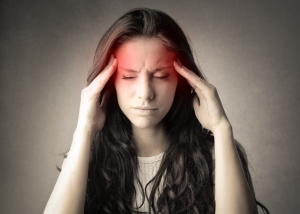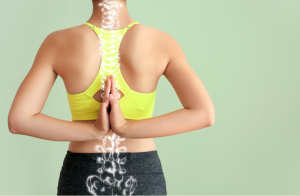Headache
 Headaches, a prevalent condition affecting individuals globally, represent not merely transient inconveniences but can profoundly disrupt daily life when persistent or severe. Headaches manifest as pain or discomfort in the head or upper neck, varying widely in type – including tension headaches, migraines, and cluster headaches – each distinguished by unique symptoms and triggers.
Headaches, a prevalent condition affecting individuals globally, represent not merely transient inconveniences but can profoundly disrupt daily life when persistent or severe. Headaches manifest as pain or discomfort in the head or upper neck, varying widely in type – including tension headaches, migraines, and cluster headaches – each distinguished by unique symptoms and triggers.
Causes of Headaches
The genesis of headaches is diverse, encompassing:
Tension and Stress: The primary culprits behind tension headaches are prolonged stress or tension, leading to muscle contractions in the head and neck regions.
Migraines: Characterized by severe, pulsating pain, migraines can be precipitated by hormonal fluctuations, specific foods, or environmental factors.
Dehydration: A notable cause of headaches, resulting from insufficient fluid intake.
Sleep Deprivation: Lack of adequate sleep is a significant contributor to headache occurrence.
Caffeine Withdrawal: Abrupt cessation of caffeine can trigger headaches, especially in habitual consumers.
Headache Relief
Alleviating headache symptoms can be achieved through:
 Rest and Relaxation: refer to the intentional practice of giving your body and mind a break from the demands and stressors of daily life. It involves taking time off from work, chores, and other responsibilities to rejuvenate and recharge. Both rest and relaxation contribute to overall well-being and are essential for maintaining good physical and mental health.
Rest and Relaxation: refer to the intentional practice of giving your body and mind a break from the demands and stressors of daily life. It involves taking time off from work, chores, and other responsibilities to rejuvenate and recharge. Both rest and relaxation contribute to overall well-being and are essential for maintaining good physical and mental health.

Moderate Caffeine Use: refers to the consumption of caffeine in amounts that are considered reasonable and within generally accepted limits for most individuals. Caffeine is a natural stimulant found in coffee, tea, chocolate, and some soft drinks. It affects the central nervous system, temporarily warding off drowsiness and restoring alertness.
 Form good posture: Good posture refers to the correct alignment of the body’s musculoskeletal structure, ensuring that the spine, joints, and muscles are in their optimal positions. Maintaining good posture involves proper alignment from the head to the feet and is crucial for overall health.
Form good posture: Good posture refers to the correct alignment of the body’s musculoskeletal structure, ensuring that the spine, joints, and muscles are in their optimal positions. Maintaining good posture involves proper alignment from the head to the feet and is crucial for overall health.
The Role of Acupuncture in Headache Management
Acupuncture, a cornerstone of traditional Chinese medicine, involves the strategic insertion of fine needles into specific bodily points to enhance energy flow and foster healing. Its application in headache management is notable for:
1. Neurochemical Modulation
Acupuncture is known to influence the body’s neurochemical pathways, facilitating the release of neurotransmitters such as serotonin and noradrenaline. These chemicals play a crucial role in pain modulation and mood regulation, which can significantly alleviate headache symptoms and reduce their frequency. By rebalancing the body’s neurochemicals, acupuncture offers a holistic approach to pain management that extends beyond the immediate relief provided by conventional analgesics.
2. Hormonal Regulation
Hormonal fluctuations are a well-documented trigger for migraines and other types of headaches. Acupuncture has been observed to affect the endocrine system, which could help stabilize hormone levels and mitigate headaches triggered by hormonal imbalances. This regulation is particularly beneficial for individuals experiencing migraines related to menstrual cycles or menopause.
3. Stress Reduction and Relaxation
Stress is a common precipitant of both tension headaches and migraines. Acupuncture sessions promote relaxation and stress reduction, addressing one of the root causes of headaches. Through the stimulation of points known to calm the nervous system, acupuncture can reduce the body’s stress response, thereby preventing the onset of stress-induced headaches.
4. Improvement of Cerebral Blood Flow
Research suggests that acupuncture can enhance cerebral blood flow, improving oxygen and nutrient delivery to brain tissues. This improvement in blood circulation may help alleviate the type of headache pain that results from vascular imbalances, offering a natural method to promote vascular health and headache relief.
5. Reduction of Muscle Tension
One of the direct benefits of acupuncture is its ability to reduce muscle tension throughout the body, including the neck, shoulders, and scalp, where tension often contributes to headache pain. This relaxation of muscles can provide immediate relief from pain and contribute to long-term headache management.
6. Enhancing Sleep Quality
Given the strong link between poor sleep quality and headaches, acupuncture’s ability to improve sleep is another avenue through which it aids headache sufferers. By promoting deeper, more restorative sleep, acupuncture can help mitigate one of the common triggers for chronic headaches.
Why Choose Happipuncture?
Happipuncture distinguishes itself through a holistic approach to healthcare, with a particular emphasis on pain management, including headache relief. The clinic prides itself on providing acupuncture treatments by highly skilled practitioners who tailor care to individual needs, focusing on addressing the underlying causes of headaches. Contact our team at Happipincture or call 09-2182992.



